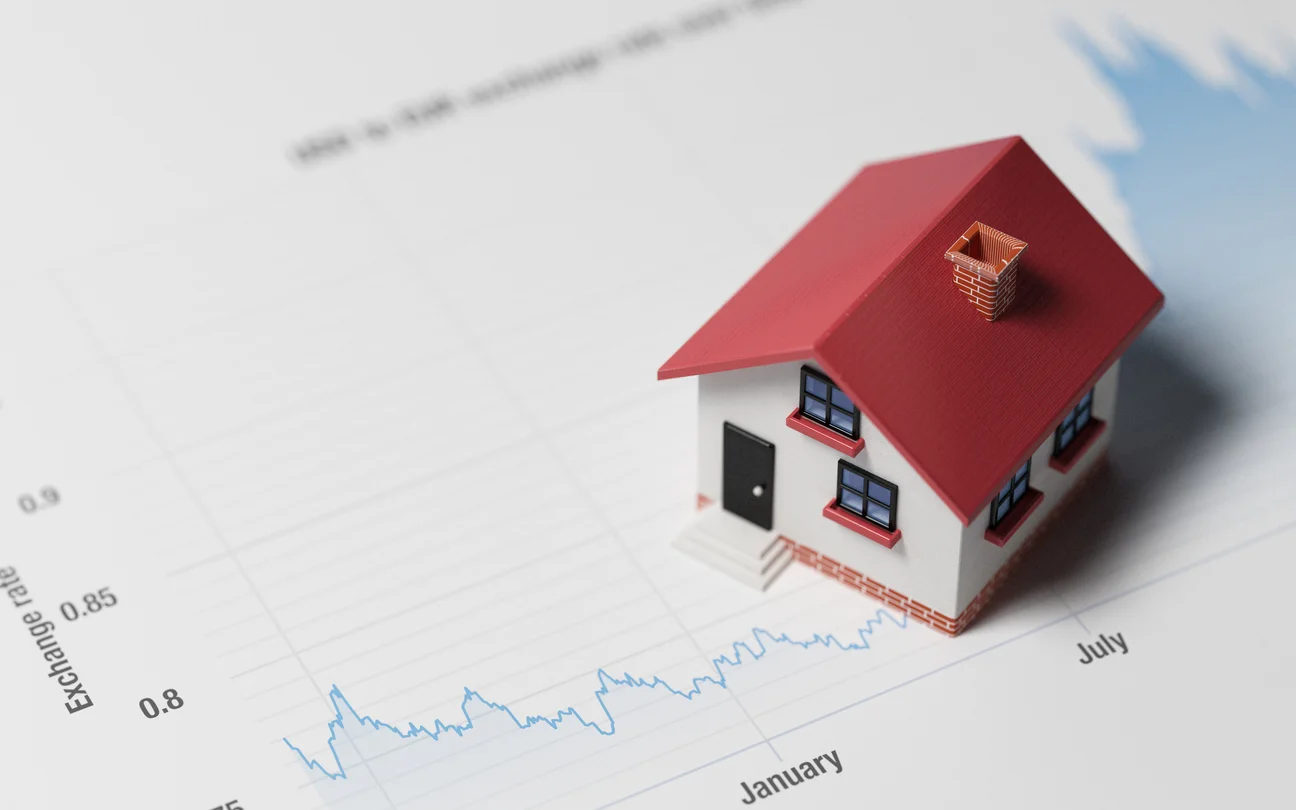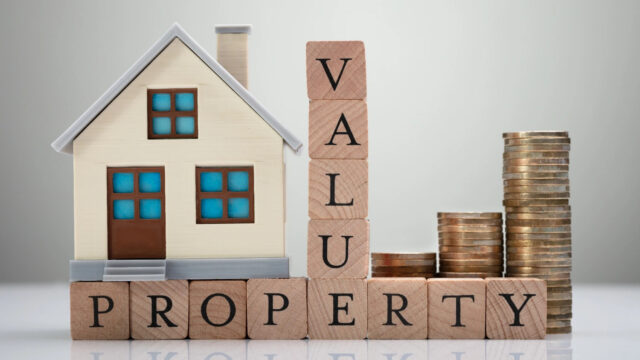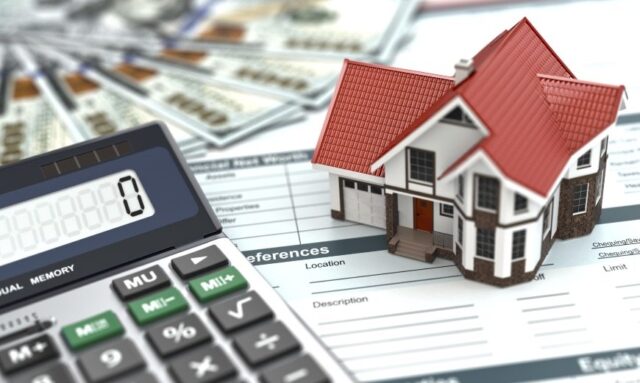
Selling a home can be a challenging endeavour, particularly in a market teeming with competition. A house priced too high may languish on the market, while one priced too low might leave potential profit on the table.
Mastering the art of property valuation is crucial for a swift and lucrative sale. Here’s a comprehensive guide to getting it right for the UK homeowner.
1. Understand the Market Conditions
- Current Market Pulse: Before settling on a price, familiarise yourself with the local property market’s dynamics. Are homes in your area in high demand, or is it a buyer’s market? The current state of the market will significantly impact your pricing strategy.
- Competitive Analysis: Examine similar properties in your neighbourhood that have recently sold or are currently for sale. This will give you a baseline for pricing your property.
2. Professional Valuation Is a Game-Changer

Hiring a professional estate agent or surveyor can be invaluable. They possess a deep understanding of the local market, are aware of current trends, and can provide an objective view of your property’s worth.
- Bespoke Assessment: Professionals can offer a tailored assessment, taking into consideration the unique features and conditions of your home.
- Reliable Network: Many agents have a network of potential buyers and can provide insights into what these buyers might be willing to pay for a property like yours.
3. Consider the Property’s Unique Selling Points
Every home has its unique selling points, whether it’s a newly renovated kitchen, proximity to local amenities, or a stunning garden view. These features can considerably uplift the value of your property.
- Highlight Renovations: If you’ve invested in upgrades or renovations, be sure to factor these into your asking price.
- Leverage Location: Proximity to schools, public transport, or city centres can substantially increase a property’s value. Ensure these aspects are emphasised when determining your price.
4. The Pitfalls of Overpricing

It’s a natural instinct to want the highest price for your home. However, overpricing can deter potential buyers and can lead to your property staying on the market for an extended period.
- Time Is Money: The longer your property is on the market, the more likely you’ll need to reduce the price. Buyers might perceive the property as undesirable or assume something is wrong with it.
- Lost Interest: Overpriced homes can be overlooked by potential buyers who set search parameters within certain price brackets.
5. Flexibility Is Key
While you should start with a competitive and realistic asking price, be prepared to negotiate. Most buyers expect a bit of back-and-forth, so be open to offers while also knowing your bottom line.
- Have a Range: Rather than sticking rigidly to a single figure, establish a price range within which you’d be willing to negotiate. This approach provides room for flexibility while ensuring you don’t undersell.
6. Use Online Tools and Platforms

The digital era offers a plethora of tools and platforms for homeowners to gauge their property’s worth. Websites like Rightmove or Zoopla can provide estimates and comparative data, though these should be used in conjunction with professional advice.
- Instant Valuation: Some online platforms, like We Buy Any Home Leeds, can even offer immediate valuations. This can be particularly useful if you’re looking for a quick sale.
Conclusion
Pricing a home correctly can mean the difference between a swift, profitable sale and a drawn-out, less rewarding process. By understanding the market, seeking professional advice, recognising your property’s unique selling points, and being flexible, you’ll be well on your way to a successful property sale in the UK.
Remember, the ultimate goal is to find the sweet spot that appeals to buyers while also reflecting your home’s true value.
Frequently Asked Questions

1. What is home valuation and why is it important?
Home valuation involves estimating the market value of your property. It’s vital for setting a competitive price, attracting serious buyers, and avoiding prolonged market exposure. An accurate valuation balances market realities with your profit expectations, ensuring a price that reflects your home’s worth in the current market.
2. How do market conditions affect home valuation?
Market conditions play a pivotal role in determining your home’s value. Factors like the current demand for homes, economic trends, interest rates, and the health of the local real estate market can all influence how much your home is worth. Understanding these elements helps in aligning your price with market expectations.
3. What are the common methods for valuing a home?
Valuing a home typically involves comparative market analysis (CMA), professional appraisals, or online valuation tools. CMAs compare similar homes in your area, professional appraisals provide a detailed assessment, and online tools use property data to estimate value. Each method varies in precision and context, making them suitable for different purposes.
4. Can home improvements significantly increase valuation?
Yes, strategic home improvements can enhance your property’s market value. Focus on renovations that offer high returns, such as updating kitchens and bathrooms, improving curb appeal, or adding energy-efficient features. It’s important to target upgrades that are universally appealing and avoid over-personalizing.
5. How often should I reevaluate my home’s value?

Regularly reevaluating your home’s value, ideally every few years or after significant improvements, keeps you informed about your property’s market position. Additionally, staying aware of shifts in the local real estate market can indicate when a reevaluation might be necessary.
6. Should I hire a professional appraiser?
Hiring a professional appraiser is beneficial, especially in complex valuation scenarios or if there’s a significant divergence between your estimation and market expectations. An appraiser provides an expert, unbiased perspective, which can be crucial for setting a realistic and marketable selling price.
7. How do online valuation tools work?
Online valuation tools estimate your home’s value using algorithms that analyse data such as recent sales of similar properties, location, property characteristics, and market trends. While they offer a quick and easy valuation, they lack the nuanced understanding of a professional appraiser or real estate agent.
8. What factors can negatively impact my home’s valuation?
Negative impacts on valuation can come from poor maintenance, outdated decor, and negative neighbourhood trends, such as declining schools or increased crime rates. Addressing maintenance issues, updating key elements of your home, and highlighting positive local attributes can help counter these effects.
9. How can I make my home more appealing for valuation?
Enhancing your home’s appeal for valuation involves keeping it well-maintained, clean, and decluttered. Cosmetic improvements like fresh paint, updated fixtures, and well-tended landscaping can positively influence perceptions of value. Also, staging your home effectively can showcase its potential to appraisers and buyers.









